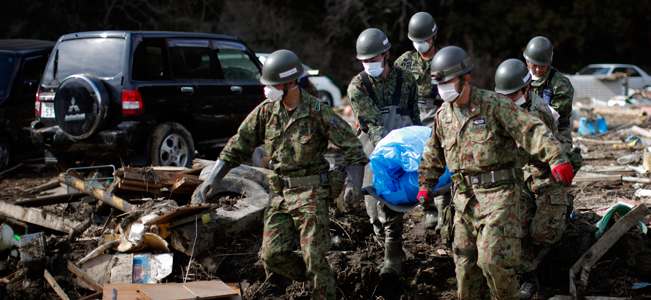
TOKYO – Officials with the company that operates Japan's tsunami-stricken nuclear plant say radioactive contamination in groundwater underneath a reactor has been measured at 10,000 times the government health standard.
A spokesman for plant operator Tokyo Electric Power Co. says the company doesn't believe any drinking water supply is affected.
Contaminated water has been pooling at the Fukushima Dai-ichi nuclear power complex since it was damaged by the devastating earthquake and tsunami. It has already leaked into the ocean.
Spokesman Naoyuki Matsumo says the elevated levels of iodine-131 were measured in groundwater 15 meters underneath one of six reactors at the plant. Iodine is a radioactive substance that decays quickly, with half disappearing in eight days.
THIS IS A BREAKING NEWS UPDATE. Check back soon for further information. AP's earlier story is below.
FUKUSHIMA, Japan (AP) — Japan is increasingly turning to other countries for help as it struggles to stabilize its tsunami-stricken nuclear plant and stop radiation leaks that are complicating efforts to recover the bodies of some of the thousands swept away by the towering wave.
French, American and international experts — even a robot — are either in Japan or on their way, and French President Nicholas Sarkozy visited Tokyo on Thursday to meet with the prime minister and show solidarity.
Workers are racing to find the source of contaminated water that has been pooling in the Fukushima Dai-ichi nuclear plant since the March 11 earthquake and tsunami. The leaks have often forced workers to flee the plant, preventing them from restarting important cooling systems.
"The amount of water is enormous, and we need any wisdom available," said nuclear safety agency spokesman Hidehiko Nishiyama.
Experts from French nuclear giant Areva, which supplied fuel to the plant, are helping figure out how to dispose of the contaminated water that has begun leaking into the ground and the sea.


